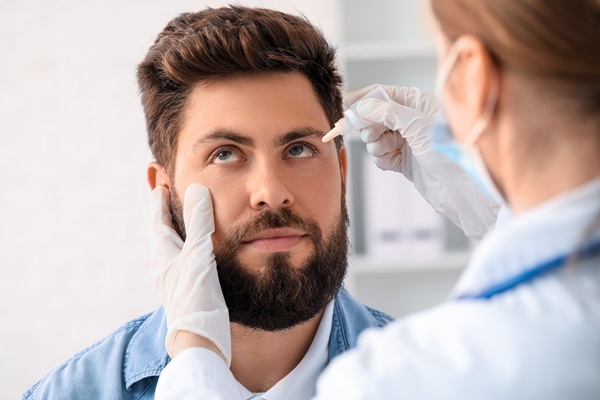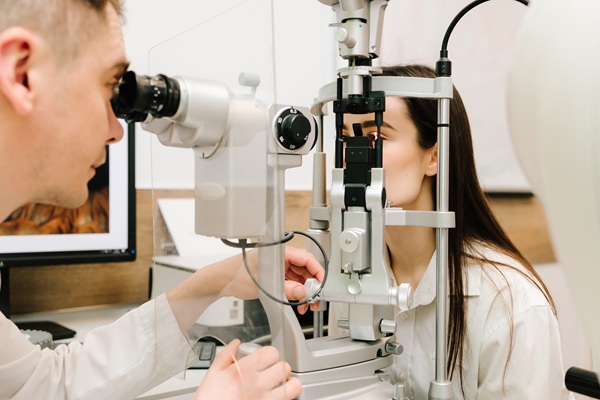Getting Prescription Eye Glasses From an Optometrist

If you have started to strain more when you read or notice other problems with your vision, consider getting prescription eyeglasses from an optometrist. Though it can be tempting to choose over-the-counter glasses from a store, they do not offer the same benefits as what you can get from an eye care professional. The following article examines the benefits of getting eyeglasses from a professional and provides an overview of the process.
What is an optometrist?
An optometrist is the professional most people see when getting prescription glasses. These practitioners are primary care providers for the eyes who complete a four-year doctor of optometry degree after undergraduate school. Optometrists focus on providing routine vision care, such as eye exams and vision tests and fitting patients for eyeglasses and contact lenses. In addition, they monitor the general health of the eyes and make referrals to other eyecare specialists when necessary.
Benefits of getting prescription glasses
Though buying a pair of eyeglasses at the grocery store may seem like an easy and inexpensive solution, seeing an eye doctor is likely the best choice for the long-term health of your vision. The optometrist can customize a prescription that fits your needs and check the overall health of your eyes. In addition, they can offer guidance on the types of lenses and frames to get and have access to higher quality materials for frames and lenses. Also, an optometrist can provide follow-up care and make necessary adjustments after the patient receives the glasses.
The process of getting prescription eyeglasses
The process of getting prescription glasses may vary from professional to professional and patient to patient. However, certain things about the process tend to be universal.
The eye exam
Those younger than 40 with no apparent eye problems should consider getting an eye exam about once every two years. Those over 40 or with signs of vision problems may need to go more frequently. During the typical eye exam, the optometrist will run the patient through a series of tests to determine the eye's overall health and what kind of prescription eyewear is needed. Most eye exams last between 30 minutes and an hour.
Lens and frame options
After the exam, the optometrist will help the patient choose frames and discuss customizing the lenses. The patient's prescription determines the type and thickness of the lens. However, the patient may choose additional add-on features such as UV protection and digital light protection. When deciding on the frames, the optometrist can help the patient decide the right color and shape for their face as well as the material that will fit the patient's comfort and durability needs.
Pick-up and follow-up
It typically takes between 7 and 10 business days following the initial eye exam for the prescription glasses to be ready. When the patient comes to pick them up, the optometrist will check the fit. Patients should be aware that it can take a couple of days to adjust to a new pair of prescription glasses. However, the patient should contact their eyecare professional if they are still having trouble adjusting after three days.
See an expert for vision care
Invest in your vision care by seeing an optometrist for prescription eyeglasses. Our eye care professionals can customize a set of prescription glasses to fit your needs and your lifestyle. Call our team today to learn more or to make an appointment.
Request an appointment here: https://brighteyesny.com or call Bright Eyes Optometry at (914) 730-9574 for an appointment in our New Rochelle office.
Check out what others are saying about our services on Yelp: Eyeglasses in New Rochelle, NY.
Recent Posts
Dry eye treatment can significantly improve comfort, vision, and overall quality of life for individuals dealing with this common yet often frustrating condition. Dry eye occurs when the eyes do not produce enough tears or when the tears evaporate too quickly, leading to symptoms such as burning, redness, blurred vision, and a gritty sensation. Effective…
Ophthalmologist and optometrists are two of the main eye care professionals. Both play an important part in helping you maintain the health and function of your eyes. However, while each type of eye doctor provides vision care, knowing the care you need can be confusing. Choosing the appropriate eye care provider depends on individual needs,…
Sunglasses have become a part of many people's wardrobes; however, they are also a great tool for protecting the eyes. Along with playing a large role in our daily lives, eyes are also sensitive to many things—sunlight being one of them. It is easy for one's eyes to sustain damage from direct sunlight exposure. Thankfully,…
A comprehensive eye exam does more than assess vision; it can also reveal early signs of various health conditions. Many systemic diseases affect the eyes before other symptoms appear, making regular exams essential to overall health care. Optometrists use advanced diagnostic techniques to detect conditions beyond vision problems, allowing for early intervention and treatment.Routine eye…


